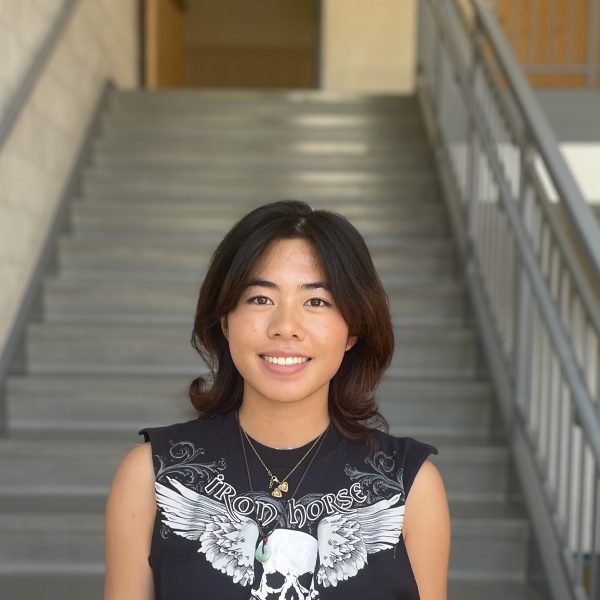The 2024 presidential election is shaping up to be one of the most divisive and high-stakes races in recent history. As America gears up to cast its votes, students at Algonquin, though many ineligible to vote, are weighing in passionately with their views on the candidates and their visions for the future.
A Harbinger survey of 115 students, conducted via Google Forms, from Sept. 23 to Sept. 27, presented questions on who students thought should be the next president of the United States. The mock election showed an overwhelming support for the Democratic candidate Kamala Harris who received 71% of the votes. Republican candidate Donald Trump received 21% with 8% of votes going to third-party candidates.
“[Harris] has stances I agree with relating to LGBTQ+ rights, women’s rights and abortion rights,” freshman Zephyr Martin said. “I think she is very good at speaking out against issues that she doesn’t agree with, both within and outside of the country.”
Kamala Harris supports LGBTQ+ rights, including marriage equality and transgender protections. She is endorsed by LGBTQ+ organizations like the Human Rights Campaign for her advocacy against discrimination. Other students, such as senior David Allexenberg, support Harris for her economic policy focused on the middle class.
“I feel Kamala Harris should be president for her pro-family and her focused economic policy, as well as her focus on greater human rights,” Allexenberg said. “I don’t see this in Donald Trump.”
Harris supports pro-family policies like paid leave and affordable childcare. Alongside economic initiatives such as tax credits, raising the minimum wage and bolstering workers’ rights to strengthen the middle class. She also advocates for robust human rights protections, emphasizing equality, justice and the defense of marginalized communities globally and domestically.
“After looking at multiple credible sources and watching actual videos of both candidates speaking and explaining their views, it is clear to me that Kamala Harris cares more about how to make life easier for average Americans and has a better plan on how to handle a presidency and country,” Martin said.
Using sources like CNN, BBC, New York Times, ABC News, and MSNBC, Martin stays informed on Harris’s journey throughout the election. Allexenberg also prefers Harris’s persona to Trump’s.
“Harris seems confident without being overly arrogant,” Allexenberg said. “More so she speaks eloquently and appears very confident, opposed to Trump who comes across arrogant and self serving.”
Harris is known among her supporters for her confident yet approachable demeanor, presenting herself with poise. However, not all Algonquin students favor Harris.
“Something that made me lean more towards Trump was the number of times Harris has been caught lying,” senior Verina Hanna said. “Saying that there were no soldiers in combat zones and that Trump wanted to abolish the constitution, both of which were proven false.”
Harris faces criticism for inconsistencies in her statements on past policy positions during her speeches and debates. In contrast, Trump’s supporters often view him as straightforward and authentic, valueing his direct communication style and his willingness to speak honestly on issues others avoid.
“I feel when Donald Trump was president he did a better job of handling the country and economy,” junior Clarissa Truman said. “I also feel the economy and unemployment rates were better under his administration. When Biden and Harris came into office, they undid every good thing Trump did for this country.”
Trump’s presidency saw economic growth and a notable drop in unemployment as he focused on tax cuts and deregulation to boost jobs and business investment. Some feel that when Biden and Harris came into office, this was all thrown out, leaving the country in uncertainty.
“I think Kamala would be the same as Biden,” Truman said “If she really wanted to change then [she] would’ve done what she’s saying in her campaign right now, while she’s in office.”
As the 2024 election nears, Algonquin students remain actively engaged in discussions about the future of the country and the impact each candidate could have. While they may not all be eligible to vote, their perspectives reflect a new generation’s investment in the issues, priorities and values shaping America’s path forward.











